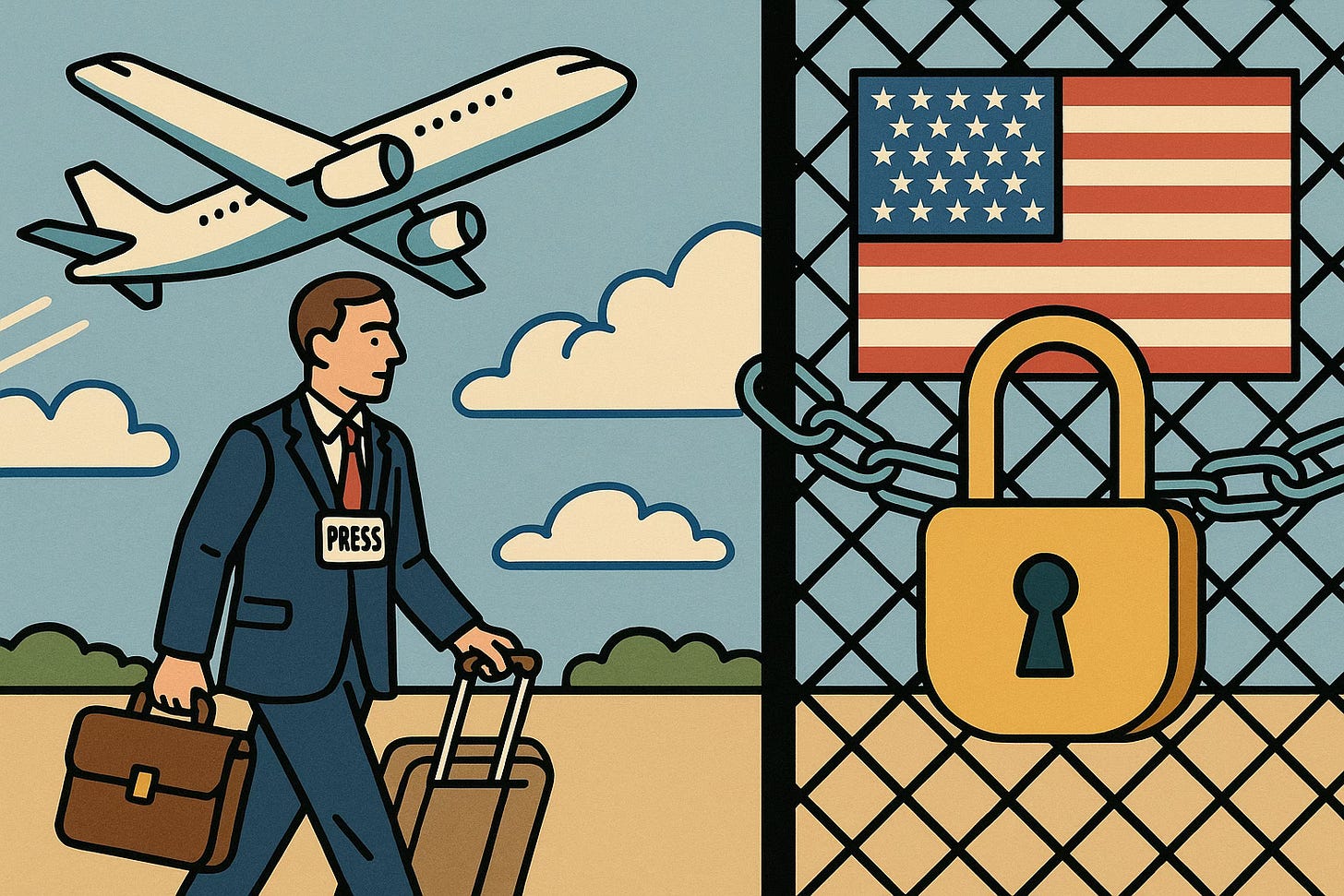When the Press Is Put on a Leash
“Unfortunately, at this time, we are unable to extend your access.”
A republic does not lose press freedom with the clang of chains. It loses its effectiveness with forms, fees, and “case-by-case” discretion. This autumn in the United States, the pieces fit together with unnerving neatness: a time cap on foreign correspondents’ stay, regulatory and legal choke points on media companies, and a culture of access that has become a favour rather than a rule. Even the scoreboard has shifted: in Reporters Without Borders’ 2025 Index, the United States has slipped to 57th. The question is no longer whether an era ends, but whether it ends for a season; or for good.
By Mika Horelli, Brussels
I have spent a dozen years of my life in New York City as an accredited correspondent. What made that life possible was not glamour or grit, but time. Journalism that adds value is slow work: you build sources, learn an institution’s dialect, memorise the floor plan of a courthouse, understand which silence means “not yet” and which means “never.” Time turns curiosity into knowledge. When time is rationed by the government, the work shrivels.
In my time, Finnish journalists’ press visas to the United States were granted for two years at a time, and renewal was automatic as long as you could show you were employed by a media outlet.
The Department of Homeland Security now proposes to impose a 240-day ceiling on visas for foreign media representatives (90 days for Chinese reporters), with renewals left to the political discretion of the administration. That wording is tidy, bureaucratic, and devastating. The long arc of a beat becomes a succession of precarious gigs; family schools, leases, and investigations start to live by the calendar. This is not a case of censorship in the classic sense. It is something subtler and in many ways more effective: the conversion of journalism into a permit regime.
Once renewal becomes discretionary, discretion becomes politics. Editors will ask if a question is worth a renewal denied. Sources will wonder whether it is safe to speak with a reporter whose presence is always “pending.” And newsrooms, especially those outside the richest coastal mastheads, will quietly avoid multi-year projects that no longer fit inside a 240-day frame.
Press-freedom groups see it plainly; the National Press Club, CPJ and RSF have all warned that the rule would structurally downgrade foreign correspondence in the United States.
Keep reading with a 7-day free trial
Subscribe to Nordic Ledger by Mika Horelli to keep reading this post and get 7 days of free access to the full post archives.



